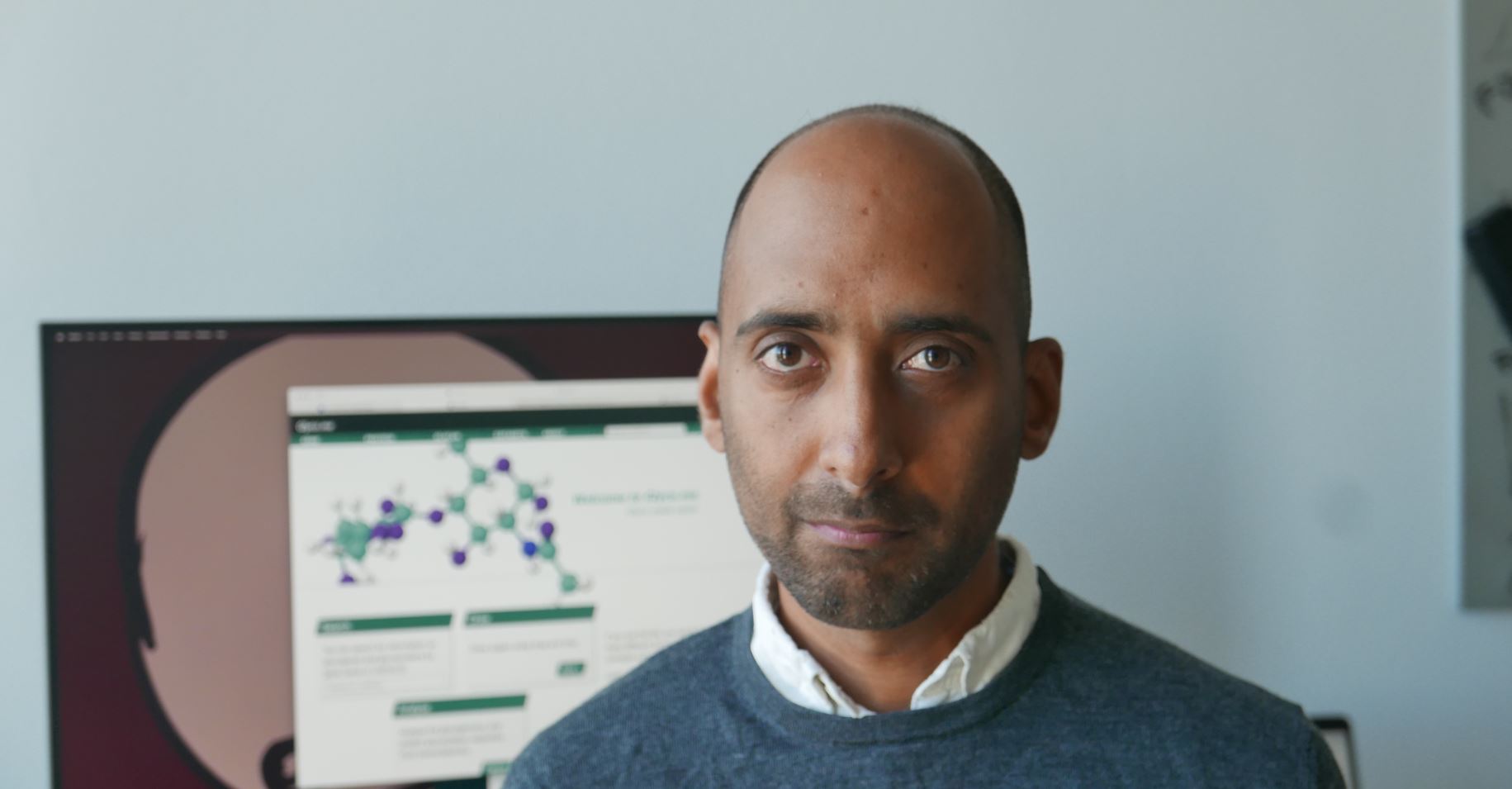The Novo Nordisk Foundation has awarded a grant of DKK 10 million to Hiren Joshi of the University of Copenhagen for a project that will map the body’s cellular regulation and production of hundreds of sugar molecules. The grant is one of eight new grants under the Foundation’s Data Science Investigator Programme.
The code to life isn’t just written in our genes and proteins.
There is also a “third language of life”, consisting of hundreds of sugar molecules, influencing everything from communication between cells to the function of specialised proteins. The sugar molecules fine-tune life’s molecular functions, but unlike genes and proteins, researchers do not yet have the same basic scientific understanding of how cellular factories regulate production of these sugar molecules to write this third language.
The Novo Nordisk Foundation has therefore awarded Hiren Joshi, Associate Professor at the Copenhagen Center for Glycomics, Department of Cellular and Molecular Medicine, University of Copenhagen a grant of DKK 10 million through its Data Science Investigator Programme for developing the GolgiNet tool that will enable researchers in many fields related to biology to understand the role of complex sugar molecules in how cellular life functions.
The GolgiNet project will build a machine learning model for deciphering how cells produce sugar molecules and how this production is organised in cells.
“Our ambition is to use GolgiNet to develop an overview, or atlas of the roles of sugar molecules in the body and how they are regulated in different types of cells, also in connection with disease. This is a novel approach to lay the foundation for solving many scientific problems involving complex sugar molecules,” explains Hiren Joshi.
Sugar molecules have many roles in cells
Hiren Joshi’s field is called glycomics: the study of the function and regulation of all complex carbohydrates, including sugar molecules.
This field is largely unexplored, and researchers today have a limited overview of the orchestration of the symphony of the hundreds of sugar molecules life requires.
Sugar molecules have many functions – some enable proteins to function, others are present on cell surfaces and ensure communication between cells and yet others act as handles that viruses can latch onto. Some sugar molecules help the immune system, and others are required for specific organs to function.
Although researchers know much about the individual complex sugar molecules and how various enzymes help to generate these sugar molecules, they do not yet know how each individual cell regulates its enzymes to make the specific sugars the cell needs at certain times to stay healthy, fit and functional.
Model will be available for research
Hiren Joshi and his project team will develop a basic model for capturing the regulatory patterns of cellular glycosylation: the production of sugar molecules in different types of cells.
The researchers will use artificial intelligence to analyse large data sets from research literature to extract information about sugar molecules. The large quantities of data are needed to find the patterns and signatures of the regulation of glycosylation in individual cells. The model will contain information about the complex sugar molecules and about how genes and proteins interact to control glycosylation.
In the data part of the project, the researchers will use graph-based machine learning to build the model and then take the next step in understanding glycobiology.
“This will transform our opportunities for understanding the third language of life and can be used to improve the deciphering of the cellular signalling of sugar molecules and how this is interrupted in illness – such as when sugar molecules become shorter as cancer develops. This will enable diseased cells to be targeted with drugs or facilitate interventions to prevent disease progression,” says Hiren Joshi, who adds that the grant from the Foundation will enable the research project to be both wide ranging and ambitious.
“The grant will enable us to build our platform faster and expand the potential for what it should contain and what it should achieve,” he concludes.
Grants for eight researchers
The grant for Hiren Joshi is one of eight new grants totalling DKK 73 million recently awarded by the Foundation through its Data Science Investigator Programme.
The grants are divided into the categories of Emerging Investigator, Ascending Investigator and Distinguished Investigator. The grants target research leaders at different career stages to support attractive career paths for talented specialists within data science.
The eight Data Science Investigator grant recipients in 2022
Emerging Investigator
- Tibor Varga, Assistant Professor, University of Copenhagen: ALFADIAB – Algorithmic Fairness in Diabetes Prediction – DKK 10,000,000
- Adam Hulman, Senior Researcher, Aarhus University: Integration of Longitudinal Multimodal Data in Clinical Risk Prediction Using Deep Learning – DKK 9,072,076
Ascending Investigator
- Fernando Racimo, Associate Professor, University of Copenhagen: A Simulation and Inference Toolbox for Spatiotemporal Genome Evolution – DKK 8,276,123
- Mikkel Schmidt, Associate Professor, Technical University of Denmark, Kongens Lyngby: Bayesian Neural Networks for Molecular Discovery – DKK 9,698,184
- Sisse Helle Njor, Associate Professor, Randers Regional Hospital and Aarhus University: Using Data Science to Estimate Overdiagnosis and Mortality Reduction in Cancer Screening Programmes – DKK 8,889,233
- Erin Gabriel, Associate Professor, University of Copenhagen: Optimizing Medical Decision-making: Advancing and Refining Estimation and Evaluation of Personalized Treatment Rules – DKK 7,618,938
- Hiren Joshi, Associate Professor, University of Copenhagen: GolgiNet: Data Science to Take Glycomics in Silico and Beyond – DKK 10,000,000
Distinguished Investigator
- Lars Kai Hansen, Professor, Technical University of Denmark, Kongens Lyngby: Cognitive Spaces – Next-generation Explainability – DKK 9,891,028
Read more about all eight projects here.
This is the third time the Foundation has awarded grants through the Data Science Investigator Programme, which is part of the Foundation’s Data Science Initiative.
The Initiative was launched in 2019 and aims to boost capacity within data science, including supporting the implementation of ambitious research programmes and new national infrastructure, offering attractive career paths and educating and training more data science specialists.
Read more about the Programme here.








